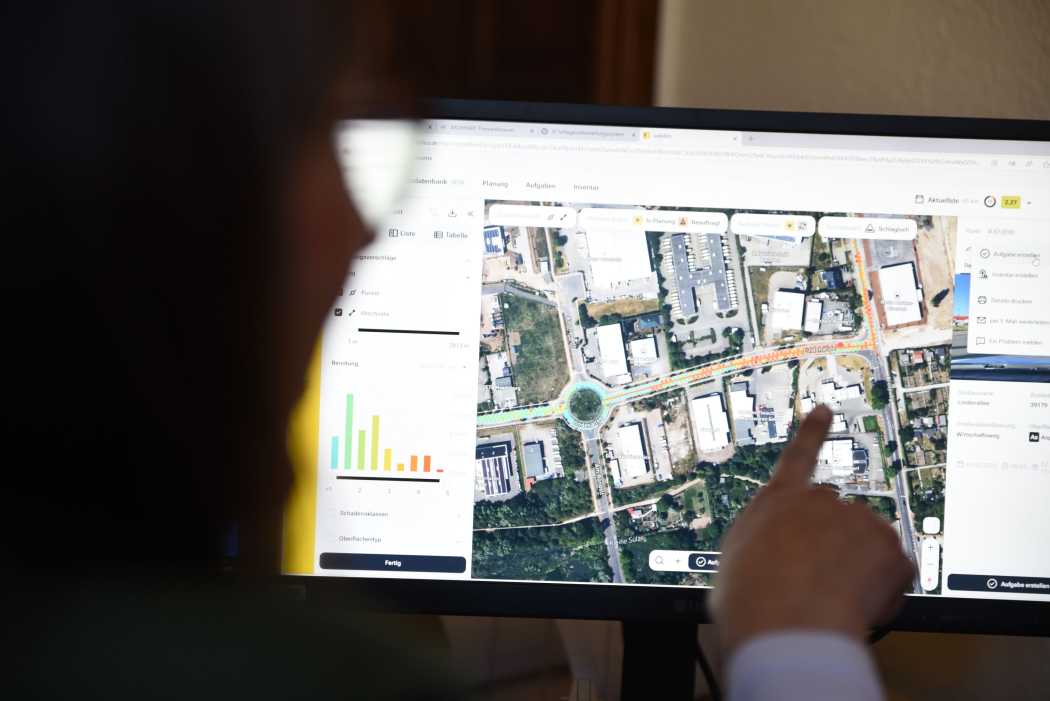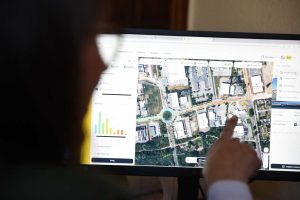Logistics infrastructure: AI use against road damage in vogue

Potholes in the roads or broken bridges: More and more local authorities in Germany are relying on artificial intelligence to check their infrastructure. Can the technology really help?
When assessing potholes and cracks in road asphalt, more and more local authorities are turning to the use of artificial intelligence (AI). The technology could help to supplement time-consuming manual processes or replace them in the future, said a spokesperson for the Federal Ministry of Transport when asked. Among other things, he referred to the automated analysis of image and sensor data.
As part of a funding program, 13 projects were supported across Germany that deal with the use of AI in road condition surveys. More than 500 local authorities in Germany, France and the USA are currently using technology from Stuttgart-based start-up Vialytics, according to the company. With the exception of the three city states, the technology is already used in all federal states.
A cell phone on the windshield of cars belonging to the public order office or the building yard, for example, takes a photo of the road every few seconds. An AI automatically evaluates the images and indicates possible damage.
Every tenth kilometer of road in very poor condition
The condition of roads is deteriorating in many places. According to a study by the German Institute of Urban Affairs in 2023, a third of roads in cities, municipalities and districts have major defects. One in ten kilometers is even in a very poor condition.
According to the institute, large parts of the transport infrastructure in municipalities will reach the end of their useful life by 2030 and will need to be replaced. For existing municipal roads alone, this would result in an investment requirement of around 283 billion euros.
“Infrastructure is the main asset of a municipality. Around a third of municipal assets are tied up in infrastructure,” says Johannes Ludwig, Managing Director of the Berlin-based company Eagle Eye.
The company also relies on mobile recording devices, among other things, and claims to have around 600 customers across Germany. If you miss the time to intervene, it always ends up being more expensive, Ludwig emphasizes.
AI systems help to obtain objective data
The aim is to obtain data that is as comprehensive and objective as possible, says Frank Nase (CDU), mayor of the municipality of Barleben in Saxony-Anhalt. The municipality north of the state capital Magdeburg was one of the first in Saxony-Anhalt to start testing AI technology.
The technology now provides a tool that is relatively inexpensive and easy to use for automatic assessment, emphasizes Nase. This means that superficial road damage can be detected earlier.
Systems have limits
However, AI systems also have their limits: The main road in Barleben, for example, consists of cobblestones, which the system does not cope well with. And the system only looks at the road surface and cannot detect any deeper damage.








